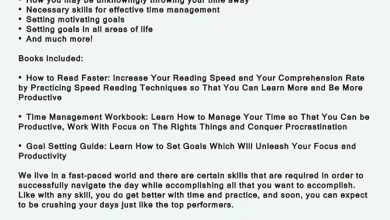Benefits Of Having Problem Solving Skills For HR Professionals In Workplace

Problem-solving skills are crucial for success in the workplace, and this is especially true for HR professionals. In today’s fast-paced business environment, HR professionals often face complex challenges that require quick and effective solutions.
HR professionals can improve decision-making, enhance productivity, and reduce costs by developing strong problem-solving skills. These skills are also essential for advancing to upper management roles and demonstrating competencies in the SHRM model.”
Here, we will explore the benefits of having strong problem solving skills for HR professionals and strategies for developing and utilizing these skills effectively.
Understanding the Role of HR Professionals
HR professionals play a critical role in organizations by managing the most valuable resource people. Their responsibilities include recruiting and hiring employees, providing training and development opportunities, managing employee relations and benefits, and ensuring compliance with labor laws and regulations.
They are also responsible for developing and implementing policies and procedures to promote a positive and inclusive work environment. Influential HR professionals must have many skills, including communication, problem-solving, strategic thinking, and leadership.
Must be able to balance the needs of employees with those of the organization and to work collaboratively with managers and other stakeholders to achieve shared goals. HR professionals are vital to the success of any organization, as they are responsible for developing and maintaining a skilled and engaged workforce that can drive growth and profitability.
Benefits of Problem-Solving Skills for HR Professionals
Having solid problem-solving skills can provide numerous benefits for HR professionals. Here are some of the most significant advantages:
Improved Decision-Making
Problem-solving skills enable HR professionals to make informed decisions quickly and effectively. They can choose the best course of action to resolve complex employee-related issues by identifying potential solutions and analyzing their outcomes.
Enhanced Productivity
HR professionals with strong problem-solving skills can streamline processes and procedures, reducing the time and effort required to handle employee relations issues. This leads to increased productivity and efficiency within the organization.
Reduced Costs
By effectively managing employee relations issues and reducing conflicts, HR professionals with problem-solving skills can save the organization money. This includes avoiding costly legal disputes, improving employee retention rates, and reducing recruitment and training costs.
Increased Career Advancement Opportunities
HR professionals with strong problem-solving skills are highly valued in the industry. Possessing these skills can lead to more significant opportunities for career advancement, higher salaries, and more challenging and rewarding roles.
Competitive Advantage
Organizations with HR professionals with effective problem-solving skills have a competitive advantage over those without. They can handle complex employee relations issues more efficiently, reducing costs and improving productivity, ultimately leading to better business outcomes.
How Can Problem-Solving Skills Impact Business Outcomes?
Problem-solving skills can have a significant impact on business outcomes. HR professionals with strong problem-solving skills can help their organizations by identifying and resolving issues that affect employee satisfaction, productivity, and retention.
They can also make informed decisions about the allocation of resources, the implementation of new policies, and the development of new strategies.
Additionally, by fostering a culture of problem-solving, organizations can encourage innovation and creativity, leading to the development of new products, services, and processes.
This can help organizations stay competitive in their respective markets and adapt to changing business environments. Overall, problem-solving skills are valuable for HR professionals, and their impact on business outcomes cannot be overstated.
Developing Problem Solving Skills For HR Professionals
Problem-solving is a skill that can be developed with practice and experience. Here are some ways HR professionals can enhance their problem-solving skills:
Attend Training and Development Programs
HR professionals can attend training and development programs to learn problem-solving techniques and strategies. These programs also provide opportunities to practice problem-solving in a safe and supportive environment.
Seek Mentorship
HR professionals can seek mentorship from experienced problem solvers within their organization or industry. Mentors can provide guidance and advice on how to approach complex employee-related issues.
Collaborate with Others
Collaborating with colleagues from different departments can expose HR professionals to different perspectives and problem-solving techniques. It helps them develop a more comprehensive understanding of their issues and identify more effective solutions.
Stay Informed
Keeping up with industry news and trends can help HR professionals stay informed about emerging challenges and opportunities. This can help them anticipate problems and develop proactive solutions.
Practice Reflective Thinking
Reflective thinking involves examining one’s thoughts and actions to identify areas for improvement. By reflecting on their problem-solving experiences, HR professionals can determine what worked well and what did not and adjust their approach accordingly.
Challenges That HR Professionals May Face In Problem-Solving
While problem-solving is essential for HR professionals, it can be challenging. Here are some of the challenges that they may face:
- Emotions: Employee-related issues can be emotionally charged, and it can be challenging to separate emotions from facts. HR professionals must learn to approach problems with empathy while also remaining objective.
- Limited Resources: HR professionals may need more resources, such as time, budget, or personnel, to address complex problems effectively. This can require them to be creative and find innovative solutions.
- Legal Compliance: Many employee-related issues have legal implications, and HR professionals must ensure that their solutions comply with local, state, and federal laws and regulations.
- Resistance to Change: Employees or upper management may resist changes proposed by HR professionals, even when they are the best course of action. HR professionals must learn to communicate effectively and build consensus to overcome this challenge.
- Ambiguity: HR professionals may sometimes need guidance or clarity with no solution. In these cases, they must learn to navigate complexity and make informed decisions based on the available information.
Read Also: Why Is Critical Thinking Important For Problem Solving And Decision Making?
How Can HR Leaders Assess Problem Solving Skills In Their Teams?
Assessing problem-solving skills is essential for HR leaders to ensure that their team can effectively handle the challenges that arise in the workplace. Here are some ways HR leaders can assess problem-solving skills:
- Ask Behavioral Interview Questions: Behavioral interview questions assess how candidates have handled real-life situations. HR leaders can use these questions to determine how well team members have solved problems in their previous roles.
- Use Case Studies: Case studies allow team members to apply their problem-solving skills to real-life scenarios. HR leaders can use case studies to observe how team members approach and solve problems.
- Conduct Problem-Solving Exercises: Problem-solving exercises allow HR leaders to see how team members think on their feet and approach problems in real time. These exercises can be in the form of brainstorming sessions or role-playing activities.
- Review Performance Metrics: HR leaders can review team members’ performance metrics to assess their problem-solving skills. For example, if an HR professional can reduce employee turnover by implementing a new retention strategy, this demonstrates their ability to solve a complex problem.
- Assess Soft Skills: Soft skills, such as communication, teamwork, and adaptability, are essential for effective problem-solving. HR leaders can assess these skills through observation, colleague feedback, and self-assessments.
Final Words
Problem solving skills for HR professionals are essential for HR to navigate the challenges that arise in the workplace effectively. By developing their problem-solving skills, HR professionals can contribute to the success of their organization by improving processes, resolving conflicts, and making informed decisions.
In addition, HR leaders can assess the problem-solving skills of their team through various methods, such as behavioral interview questions, case studies, problem-solving exercises, performance metrics, and soft skill assessments. By doing so, HR leaders can identify areas for improvement and ensure that their team can effectively handle the challenges that arise in the workplace.
Overall, the benefits of problem-solving skills for HR professionals are numerous. Investing in developing these skills can lead to improved performance, increased employee satisfaction, and a more successful organization.



